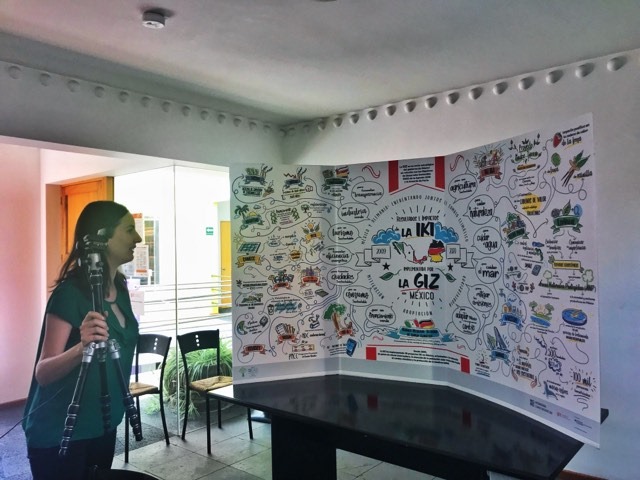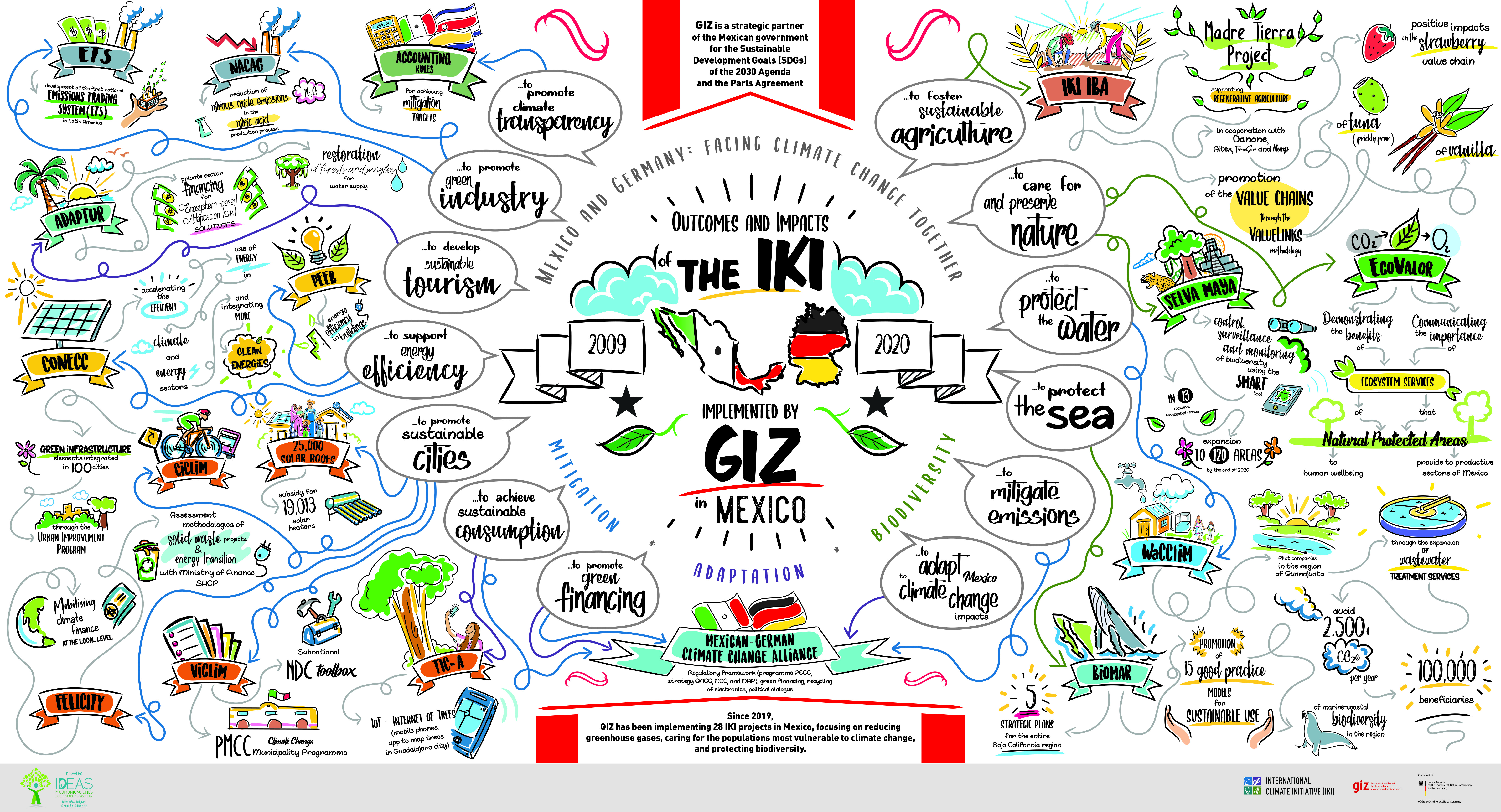In a novel virtual format, representatives of the International Climate Initiative (IKI) projects in Mexico, alongside their Mexican government counterparts, exchanged knowledge and established links in the fourth exchange workshop, which took place on Thursday 19th March 2020.
Rodolfo Godínez, head of the Coordinating Unit for International Affairs (UCAI) at the Mexican Ministry of Environment and Natural Resources (SEMARNAT) and Vera Rodenhoff, from Germany’s Federal Ministry for the Environment, Nature Conservation and Nuclear Safety (BMU), highlighted the importance of cooperation between Mexico and Germany in matters of climate change and biodiversity. Subsequently, Jasmin Fraatz, director of the Mexican-German Climate Change Alliance of the Deutsche Gesellschaft für Internationale Zusammenarbeit (GIZ) GmbH, welcomed the 118 online participants and encouraged them to generate exchanges that could optimize their everyday work.
Starting now: 4th International Climate Initiative #IKI networking workshop in Mexico! 🇲🇽 👏 🌱 🌎
In times of Covid-19, our 36 projects & their partners from the Mexican & German Governments meet virtually to share & discuss experiences! 👉 Follow @IKI_Mexico & stay tuned! pic.twitter.com/B1y5AtQP0U— IKI BMU (@iki_bmu) March 19, 2020
The workshop started with four speakers. First, Yutsil Sangines from the General Directorate of Climate Change Policies (DGPCC) at SEMANART and Andrea Cruz from the National Commission for the Knowledge and Use of Biodiversity (CONABIO) discussed Mexican public policies and government perspectives on climate and biodiversity for 2020.
Next, Philipp Behrens y Vera Rodenhoff from the BMU talked about the cooperation opportunities between IKI and the Mexican government for achieving the Nationally Determined Contribution (NDC), as well as collaborative projections between Mexico and Germany on the topics of climate change and biodiversity.
#ikialliance @iki_bmu @IKI_Mexico evento digital. pic.twitter.com/phd8tiiuaf
— GabrielaN (@GabyNino80) March 19, 2020
Afterwards, there was a panel discussion in which Mexican and German government representatives addressed two main questions: How has IKI supported the implementation and ambition raising of the NDC and the National Biodiversity Strategy of Mexico (ENBioMex)? And: What are the expectations regarding the collaboration with IKI projects in the future? Participating in the exercise were the Ministries of Environment and Natural Resources (SEMARNAT); Agriculture and Rural Development (SADER); Agricultural, Territorial and Urban Development (SEDATU); and Tourism (SECTUR); the National Commission for the Knowledge and Use of Biodiversity (CONABIO); the National Commission of Natural Protected Areas (CONANP); the National Institute of Ecology and Climate Change (INECC); and the BMU representing the German government.
After the exchange, Claudia Kirschning, IKI interface advisor, gave an overview of the IKI interface in Mexico, explaining that 36 projects are currently being implemented in the country (20 related to mitigation, 8 to biodiversity, 4 to adaptation, and 4 REDD+ projects). In addition, 20 implementing organizations and 32 Mexican government counterparts are collaborating to achieve climate and biodiversity targets. She also highlighted the IKI communication channels, including the IKI Alliance blog, Twitter, and the quarterly newsletter.

In the second part of the workshop, IKI project leaders divided into working groups to exchange knowledge and reach agreements that will help support an increased synergy among the different initiatives. The topics covered were: private sector, sustainable urban development, agriculture, adaptation, biodiversity/REDD+, financing, transparency/MRV, and mitigation/energy.
After the plenary session, Jasmin Fraatz thanked attendees for participating in this new digital format and announced that a face-to-face version of the event would take place in the future.
More information regarding the first, second and third workshops.

